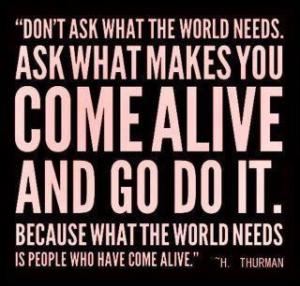You may have seen ukulele phenom Jake Shhimabukuro’s YouTube video, shot in NYC’s Central Park, of “While My Guitar Gently Weeps,” which has more than 11 million (!) views.
You might also have seen Jake’s TED video where he performs a masterful version of Queen’s “Bohemian Rhapsody,” all on four strings…:-)
I’m here speaking in Waikiki and chanced upon an excellent PBS-Hawaii documentary last night about Jake, a virtuoso who has “hit it big,” yet remains grounded in his values.
Jake Shimabukuro: Life on Four Strings
A favorite segment of the PBS special was when Jake played his ukulele in Sendai, Japan (ravaged by the 2011 tsunami), at a senior care center.
The expressions on these people’s faces, their tapping along with Jake’s strumming, was particularly poignant and profound.
Perhaps most powerful was Jake’s statement, “My goal when I play is to connect with my audience, to play music that moves them.”
Kudos to Jake. His goal deserves to be our goal as speakers and writers.
The goal of speaking is not to get a standing ovation. It is not to get a perfect 10 on our evaluations or to generate lots of “back of the room” sales.
The goal of writing is not to have a book that serves as a business card (gak). It is not to have a bestseller or to have “product” that drives our career.
Those are nice; those are welcomed; they’re just not the primary reason we speak and write.
The goal of speaking and writing is to connect with our audience members and readers; to share ideas, insights and stories that move them to feel something, to rethink something, to do something differently.
A participant came up after my presentation on Friday and said, “You just radiate joy. What is your secret?”
First, I thanked him and then told him, “I am so grateful for the opportunity to speak for a living.
To stay centered in my goal of genuinely connecting with participants and sharing something that puts the light on in their eyes; I repeat the following mantra to myself in the minutes before a presentation.
I am here to serve; not to show off.
I am here to inspire; not to impress.
I am here to make a difference; not to make a name.
Then, I start every presentation with Arthur Rubenstein’s quote … “I have found if you love life; life will love you back.”
I have found that if I center myself in that mantra and start off with Rubenstein’s quote, it grounds me in how much I love speaking.
And when we love what we do, people often love being around us and want to be part of it.
Any nervousness or self-consciousness disappears.
What takes its place is a sublime stream-of-consciousness where we’re swept up in an exquisite state of flow in which we’re one with our audience.
What mantra do you use to ground yourself in your clarity that the purpose of your speaking is to serve, not to show off; to inspire, not to impress; to make a difference, not to make a name?
When writing, I picture someone specific across the desk from me and write to that person. It could be one of my sons, a client or a friend, someone who could benefit from what I’m trying to get across.
It transforms writing from being an intellectual exercise, a brain dump of “What do I want to say?” to “What would put the light on in this person’s eyes?”
When I mentally reach out to a specific person, when my purpose is to write something that would resonate with them; the words flow out so fast my fingers can hardly keep up.
How about you?
Who are you going to speak to – write to?
How are you going to keep them top-of-mind by focusing on how you can reach them, resonate with them?
How are you going to center yourself in your intent to connect; which is the real reason we communicate?
Always has been. Always will be.



